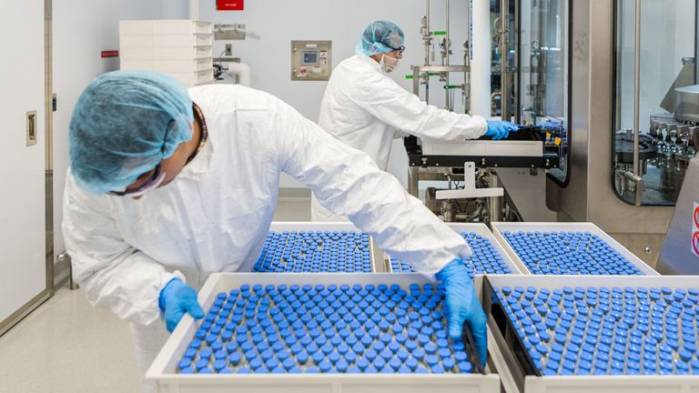US regulators will allow experimental drug remdesivir to be used on seriously ill COVID-19 patients.
US President Donald Trump announced the news alongside Food and Drug Administration Commissioner Stephen Hahn, who said the drug would be available for patients receiving hospital treatment for COVID-19.
Remdesivir is an antiviral drug that was originally developed to tackle ebola.
A government-sponsored study has showed that remdesivir shortened recovery time by 31% – about four days on average – for patients in hospital with the virus.
The study of 1,063 patients is the largest of remdesivir, which belongs to Gilead Sciences.
It found that those given the drug were able to leave hospital in 11 days on average, compared with 15 days for the control group.
It is not yet clear whether remdesivir is preventing COVID-19 deaths but it is the first drug to show promise in fighting COVID-19, which has killed more than 235,000 people worldwide.
Remdesivir has been authorised by the Food and Drug Administration under its emergency powers.
Normally, “substantial evidence” – usually in the form of more studies – would be required to prove the drug’s safety and effectiveness.
READ ALSO: WHO Identifies Two Ebola ‘More Effective Drugs’
But, due to the pandemic, the FDA only requires a drug maker to prove that the drug’s potential benefits outweigh its risks.
It will still need full approval but the FDA can give this if Gilead Sciences or other researchers provide more evidence of remdesivir’s safety and effectiveness.
The drug, which is given intravenously in hospital, has not been tested on people with the milder form of the virus.
Gilead Sciences chief executive Daniel O’Day called the move an important first step and said the company was donating 1.5 million vials of the drug.
Late in March the FDA authorised malaria drug, hydroxychloroquine, for emergency use after Mr. Trump repeatedly touted it as a cure.
But no studies have shown it to work and some have even shown significant safety concerns.
In April, the regulator warned doctors against prescribing it aside from in hospital or for research, due to the risk of those side effects.











